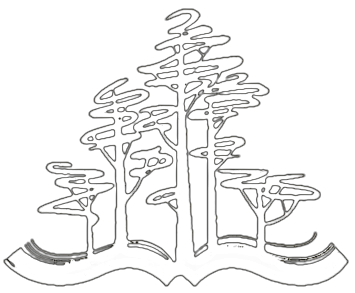Summer School on the Russian Literature. 2022.
Vol. 18. № 1
Conceptual history as a scientific discipline (Begriffsgeschichte) confirms the long-standing observation that the use of certain words as special, obligatory terms bears not only a semantic quality but also an institutional and social dimension. Scientific concepts not only denote something but also work as an instrument of group identification. Its establishment and maintenance is conditional and changeable. In various fields of knowledge, the same words can mean different things. Terms are included in different contexts and imply different semantic connections referring to the diversity of pragmatic needs such as statements, questioning, doubt or explanation, etc. Ultimately, the nature of any interpretation is predetermined by its pragmatic aim and, therefore, alternative efforts. This article carries a theoretical task and a certain revisionist claim to point out the possibilities of heuristic correlation of these concepts as a method of philological anthropology.
Keywords: motiv, motivation, V. Propp, R. Bart, A. Moles.
Keywords: motiv, motivation, V. Propp, R. Bart, A. Moles.
Konstantin Bogdanov
Motive As A Choice
The paper completes a cycle of articles devoted to unpublished translations from the literature of antiquity that Ivan I. Vinogradov (1765–1801) composed in the last years of the eighteenth century. Together with his other translations from ancient poetry they constitute a voluminous manuscript that is preserved in the Russian National Library in Saint Petersburg. As his main source Vinogradov used a popular French anthology by Julien-Jacques Moutonnet de Clairfons (1740–1813), which was printed many times in the eighteenth century. All editions of this book contain twenty-one epigrams from the Greek Anthology; Vinogradov translated six of them and took four from another source that is hard to determine. A comparison of texts indicates that Vinogradov also used the Latin original to render the erotic tension in the „Pervigilium Veneris“, which is weakened in the French version. An addendum to the paper contains ten epigrams and the „Pervigilium Veneris“ found in manuscript form in the Russian National Library.
Keywords: Eighteenth-Century Russian Poetry, Epigrams from the Greek Anthology, the Latin Poem „Pervigilium Veneris“, Reception of Classical Antiquity in Russia, Ivan Vinogradov.
Keywords: Eighteenth-Century Russian Poetry, Epigrams from the Greek Anthology, the Latin Poem „Pervigilium Veneris“, Reception of Classical Antiquity in Russia, Ivan Vinogradov.
Konstantin Lappo-Danilevskii
Ivan I. Vinogradov As Translator Of Epigrams From The Greek Anthology And Of The „Pervigilium Veneris“
The article presents an analysis of the conflict in the tragedy of A. Sumarokov „Semira“. As a result of considering the sides of the tragic contradiction (political, metaphysical, love), it turns out to be possible to identify the specifics of Sumarokov’s tragedy, the main features of the conflict of which are the purely internal motivation of the characters’ actions and the associated potential ambiguity of their assessment. The problem of the tragic beginning in the playwright’s play, which is closely related to this, is highlighted separately. The contradictions that the characters face are considered in the context of the creative history of the work, which makes it possible to see the principles of Sumarokov’s poetics more clearly.
Keywords: A. Sumarokov, „Semira“, tragedy, literature of the 18th century, dramaturgy.
Keywords: A. Sumarokov, „Semira“, tragedy, literature of the 18th century, dramaturgy.
Andrey Petrov
Features Of The Conflict Of The Tragedy Of A. P. Sumarokov „Semira“
The article discusses the evolution of the image of Christopher Columbus in M. V. Lomonosov’s works. The research is based on the material of solemn odes, panegyrics in prose and scientific treatises of the great Russian polymath. As a result of the research, a hypothesis about evolution of the image of Christopher Columbus in Lomonosov’s works from a poetical idea to a social and political ideologeme is presented. Besides, the post-Lomonosovian functioning of the image in Russian literature is observed.
Keywords: M. V. Lomonosov, Christopher Columbus, ode, social and political ideologeme.
Keywords: M. V. Lomonosov, Christopher Columbus, ode, social and political ideologeme.
Artyom Trofimov
The Age of Discovery in Russian Literature of the XVIIIth century
The Case of M. V. Lomonosov and Christopher Columbus
The Case of M. V. Lomonosov and Christopher Columbus
This article offers a critical review of materials and scholarly research on the problems of Stalinist official culture. A look at Socialist Realism through the prism of the history of ideas allows us to trace the
trajectory of the „birth“ of scholarship on the literature of Stalinism. The review encompasses both literary-critical texts and special historical-literary and documentary research on the artistic life of the past century.
The bibliographic data presented herein merely provides an outline of the „scholarly field“, but does not by any means exhaust it.
Keywords: Stalinist culture, Soviet literature, socialist realism, late Stalinism, intellectual history.
trajectory of the „birth“ of scholarship on the literature of Stalinism. The review encompasses both literary-critical texts and special historical-literary and documentary research on the artistic life of the past century.
The bibliographic data presented herein merely provides an outline of the „scholarly field“, but does not by any means exhaust it.
Keywords: Stalinist culture, Soviet literature, socialist realism, late Stalinism, intellectual history.
Dmitry Tsyganov
An Intellectual History of the Literature of Stalinism
Bibliographical Review
Bibliographical Review
The article discussed the description of the poetics of the Russian opéra féerie of the XVIII century based on the analysis of the remarks of plays related to this genre. For a long time it has been believed that the opera feerie of the XVIII century is an insignificant branch of the genre of Russian comic opera, and conclusions about the specifics of this phenomenon have been made only on the basis of the most famous texts in the scientific community — the operas of Catherine II. However, studying the specifics of the remarks and their functions in the libretto of all Russian opéras féeries of the XVIII century allows us to see the originality of this genre, identify the features of its existence and determine its place in the history of the development of Russian musical theater as a whole.
Keywords: history of Russian opera, opéra comique, opéra féerie, XVIII century.
Keywords: history of Russian opera, opéra comique, opéra féerie, XVIII century.
Alina Shiyan
Poetics of remark in the Russian opéraféerie of the XVIII century
Contacts
summerschool@list.ru
В оформлении сайта использованы материалы Freepik.


